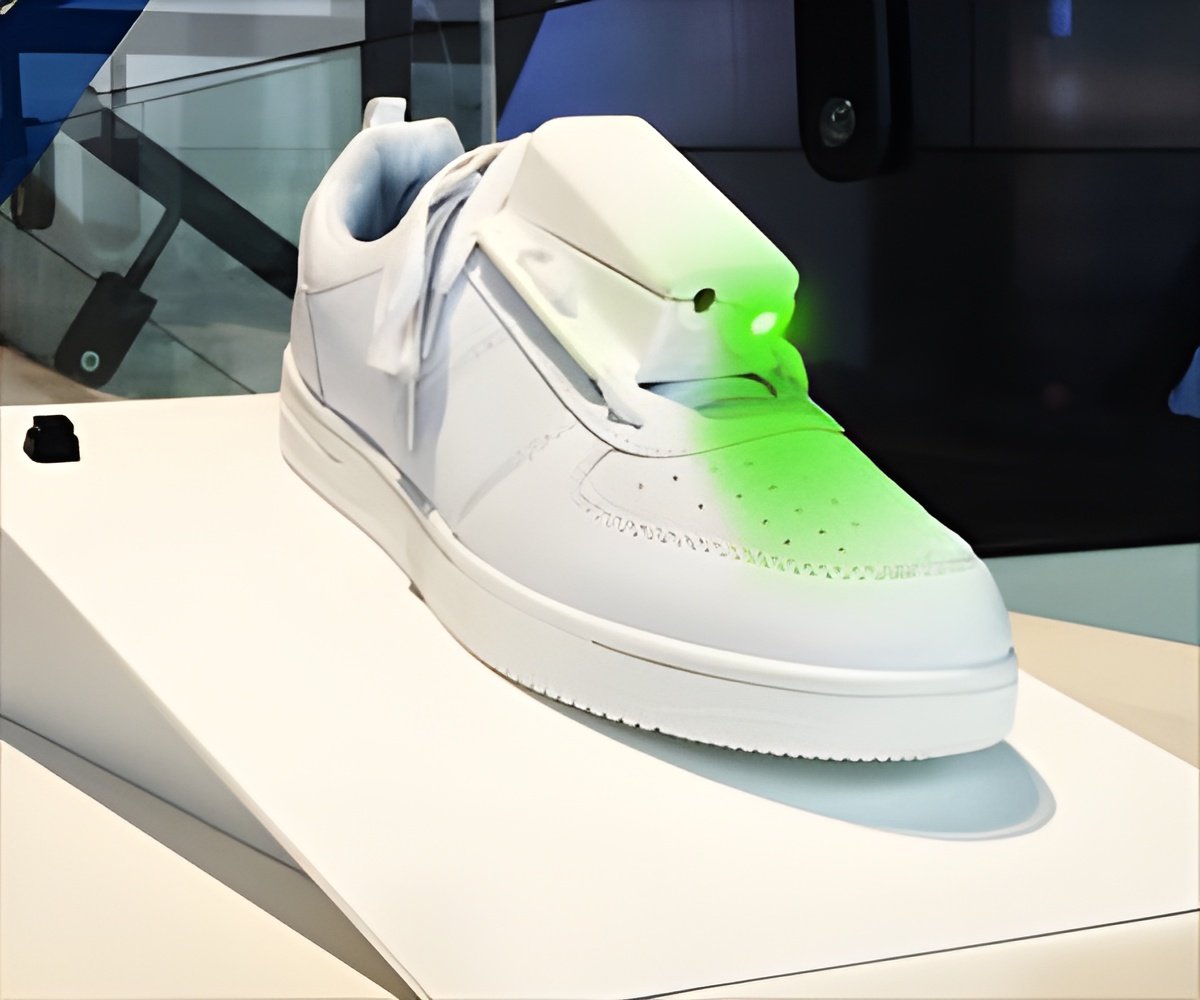Shoe that provides laser light mediated guidance for Parkinson’s disease patients prevents falls and earns student designer an award at Bafta.

- Laser shoe designed to prevent Parkinson’s sufferers from falling, wins designer an AXA PPP Health Tech & You award
- People who suffer from Parkinson’s disease suffer from frozen gait that makes them fall
- Lise Pape, a design engineering student, designed these shoes with her father, who suffers from Parkinson’s, in mind
The Motivation Behind Designing the Shoes
Lise’s father suffers from Parkinson’s and she has been watching him go through the various stages of the disease. The medicines that are available for Parkinson’s are not adequate to ensure a good quality of life and people with the disease are forced to depend on others for support, even for basic functions like walking.Changes in walking progression are an important marker of Parkinson’s progression. Bayle and colleagues studied 39 Parkinson’s patients and 159 controls to understand the differences in walking and if it can be used as a marker for disease progression. The scientists studied the stride length as well as the step cadence of the study participants and tried to correlate it with age and disease progression. This study, titled "Contribution of Step Length to Increase Walking and Turning Speed as a Marker of Parkinson's Disease Progression." and published in the Journal PLoS One. (2016 Apr 25) showed that
a. Length of steps
b. Step rate or cadence
are age invariant and are markers for the progression of Parkinson’s. The conclusive evidence from this study shows the effect of Parkinson’s on walking, crippling sufferers.
One of the most frustrating characteristics of Parkinson’s disease is 'freezing of gait' where patients suddenly freeze while walking, leading to a high risk of falls.
Mechanism of Action of these Laser Shoes
The shoes are fixed with laserthat beams a straight line when the foot is placed on the ground, based on pressure. The laser light that is beamed as a straight line guides the patient to place the next foot forward along the line.
Highlights of Using the Laser Guided Shoe:
- Patients focus on the light beam and the path of walking which eases them to take the next step forward.
- There has been a 55% reduction in falls due to these shoes.
- The laser lights from these shoes are more prominent when compared to laser lights from canes to guide patients.
- Laser lights are visible even during day light.
- Medical devices, such as these shoes, that are worn are more comfortable than hand held devices.
- They aid in assisting with the specific needs of the patient.
- Builds confidence among people suffering from Parkinson’s.
- Lowers medical expenses incurred due to falls
Award for Laser Light Shoes
Ms. Pape won the Independent Living Award at the AXA PPP Health Tech & You Awards that was held at Bafta in Piccadilly.
There are many advances in the treatment and care for Parkinson’s, however, these shoes with the laser light will benefit patients with Parkinson’s as they are easy to use and offer hope and independence in combating the disease condition.
Reference:
-
Contribution
of Step Length to Increase Walking and Turning Speed as a Marker of Parkinson's
Disease Progression
https://www.ncbi.nlm.nih.gov/pubmed/27111531











